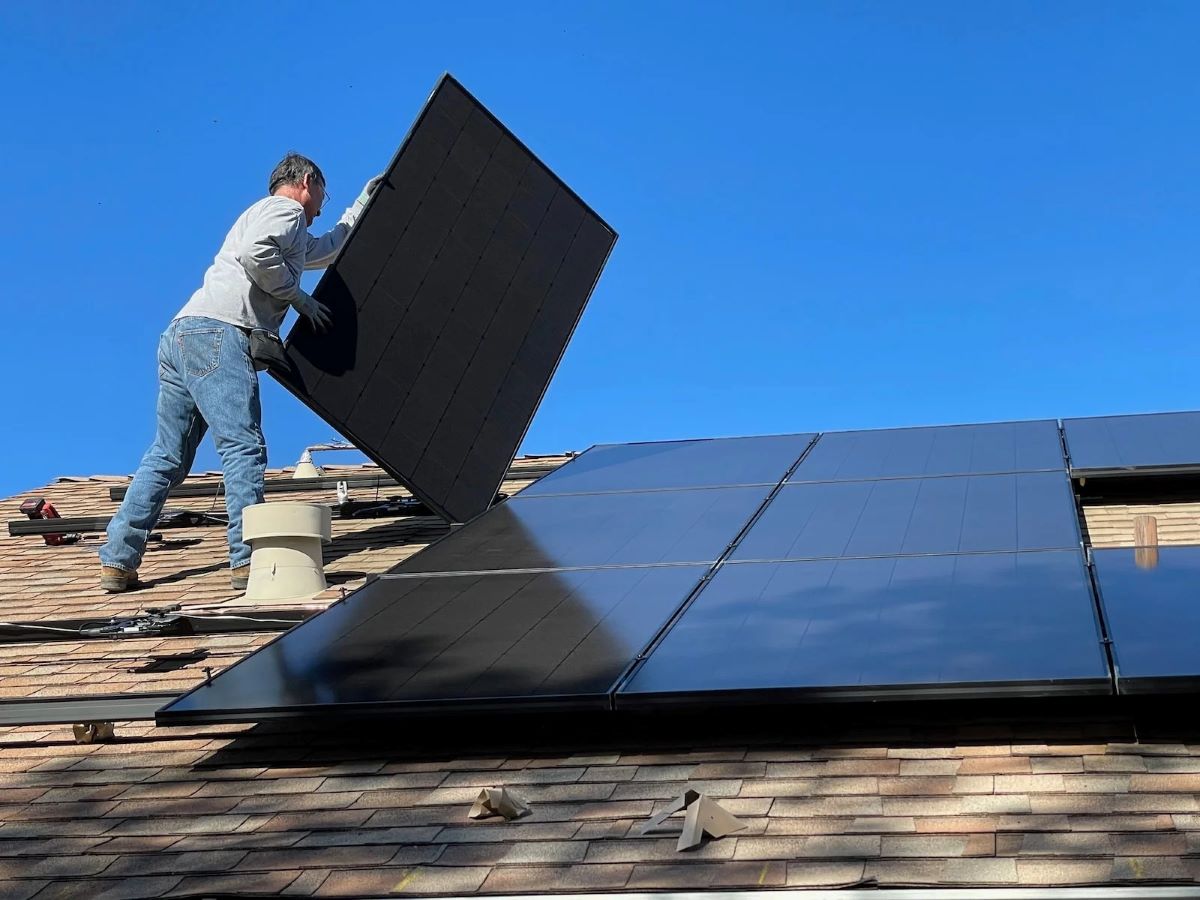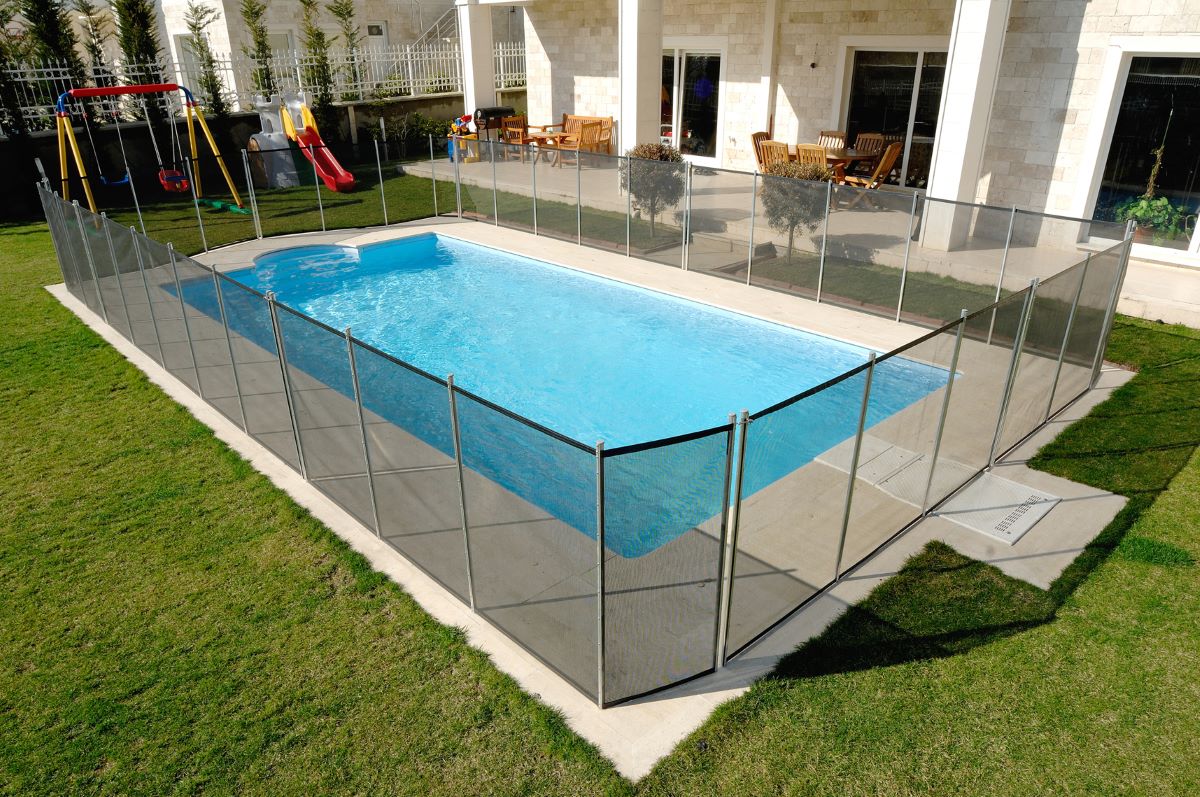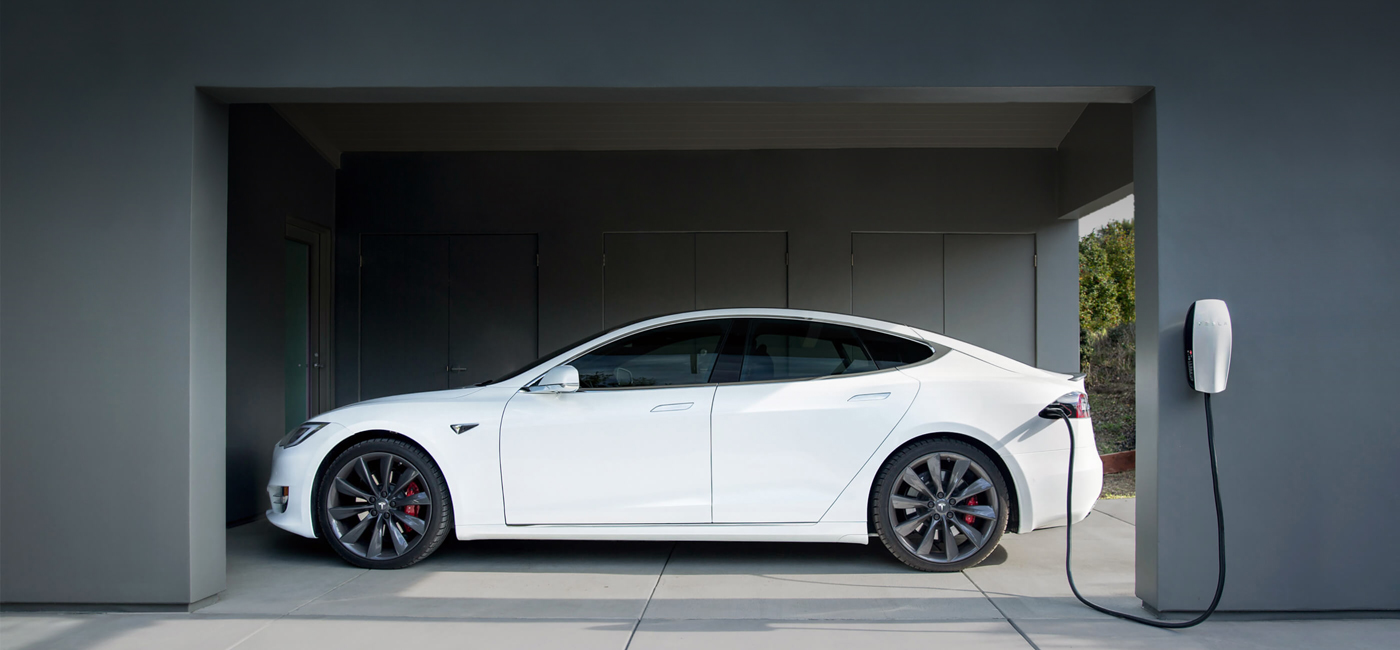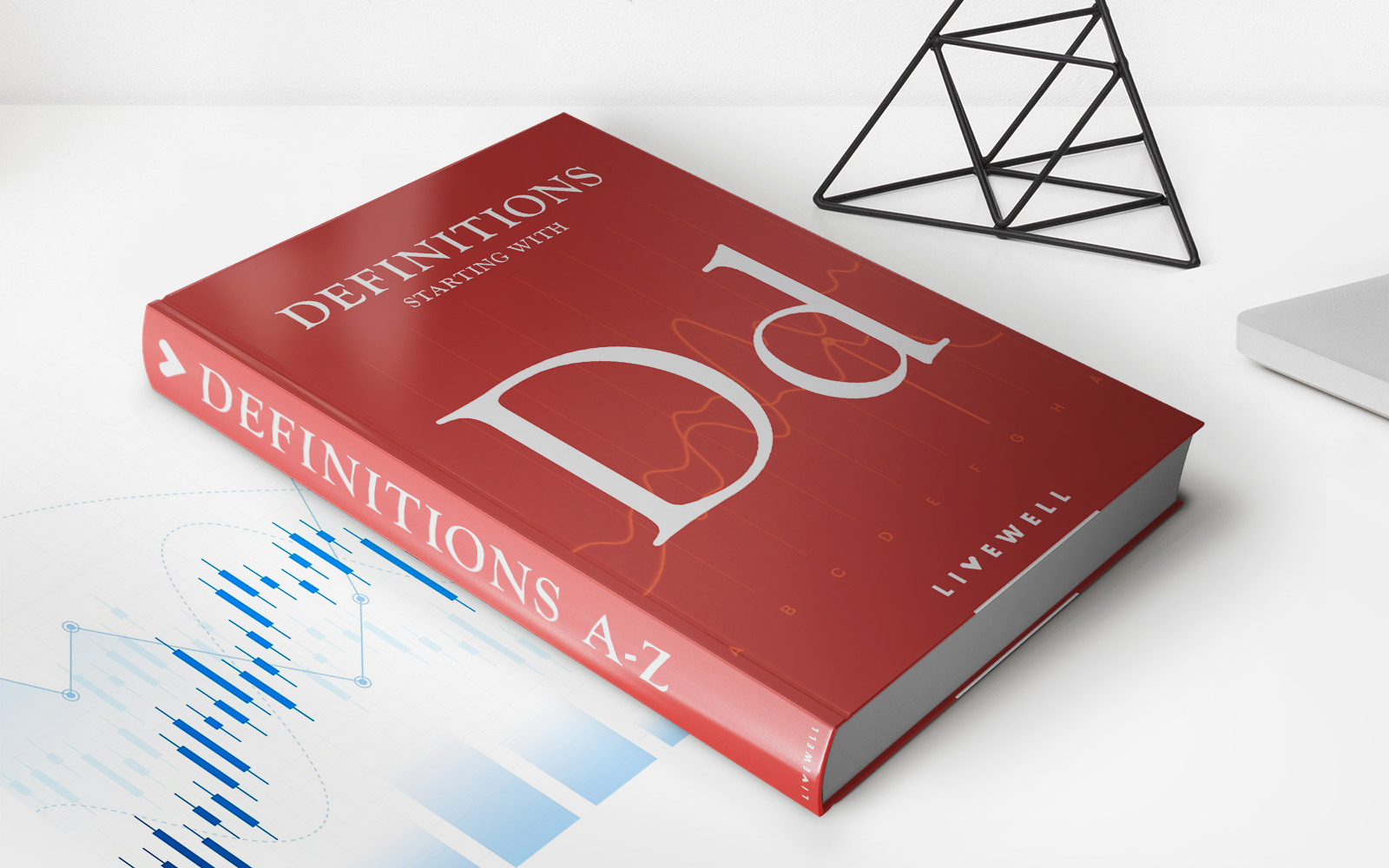

Finance
How Much Does Solar Panel Insurance Cost
Published: November 24, 2023
Looking to finance solar panel insurance? Find out the cost and get peace of mind for your investment. Compare quotes and save today.
(Many of the links in this article redirect to a specific reviewed product. Your purchase of these products through affiliate links helps to generate commission for LiveWell, at no extra cost. Learn more)
Table of Contents
Introduction
In recent years, the demand for solar energy has been on the rise as more people recognize the environmental and cost-saving benefits of harnessing the power of the sun. Solar panels have become a popular investment for homeowners looking to reduce their carbon footprint and save on energy costs. However, just like any other valuable asset, solar panels come with their own set of risks and potential damage. That’s where solar panel insurance comes into play.
Solar panel insurance is a specialized type of coverage that provides financial protection in the event of damage or loss to your solar panels. Whether it’s due to extreme weather conditions, theft, or accidental damage, having the right insurance can give you peace of mind knowing that you’re protected against unforeseen circumstances.
While solar panel insurance is not mandatory, it is highly recommended, as the cost of repairing or replacing damaged panels could be significant. However, before you dive into purchasing a policy, it’s important to understand the factors that can affect the cost of solar panel insurance, the different types of coverage available, and some tips for lowering your insurance premiums.
In this article, we will delve into these topics and provide you with valuable insights, so you can make an informed decision when it comes to protecting your solar panel investment. Let’s explore further.
Factors That Affect Solar Panel Insurance Cost
When it comes to determining the cost of solar panel insurance, several factors come into play. Understanding these factors will help you get a clear idea of what to expect in terms of insurance premiums. Here are some key factors that can affect the cost of your solar panel insurance:
1. Location: The geographical location of your property plays a significant role in determining your insurance cost. Areas prone to extreme weather events like hurricanes, tornadoes, or hailstorms may have higher insurance premiums due to the increased risk of damage to solar panels.
2. System Size and Value: The size and value of your solar panel system will impact your insurance costs. Larger and more expensive systems will have higher premiums since the potential payout for a claim would be greater.
3. Roof Type: The type of roof you have can affect the insurance cost. Roofs made of materials that are more resistant to damage, such as metal or tile, may result in lower premiums compared to roofs made of more flammable materials like wood.
4. Deductible: The deductible is the amount you are responsible for paying out of pocket before the insurance coverage kicks in. A higher deductible can lower your insurance premium, but it also means you’ll have a larger financial burden in the event of a claim.
5. Claims History: Your claims history, both for solar panel insurance and other types of insurance, can influence the cost of your premiums. If you have a history of making frequent claims, insurers may consider you to be a higher risk and charge a higher premium accordingly.
6. Coverage Limits: The level of coverage you choose will impact your insurance costs. Opting for higher coverage limits will result in higher premiums, but it provides more comprehensive protection for your solar panels.
7. Insurance Company: The insurance provider you choose can also affect the cost of your solar panel insurance. Different insurance companies have different pricing models and factors they consider when determining premiums. It’s a good idea to shop around and compare quotes from multiple insurers to find the most competitive rate.
Keep in mind that these factors can vary from one insurer to another, so it’s important to consult with your insurance provider to get a personalized quote based on your specific circumstances.
Types of Solar Panel Insurance Coverage
When it comes to insuring your solar panels, there are different types of coverage options available to suit your specific needs and preferences. Understanding these types of coverage will help you choose the right policy for your solar panel investment. Here are the main types of solar panel insurance coverage:
1. Property Damage Coverage: This coverage protects your solar panels against damage caused by various perils, such as fire, windstorms, hail, or vandalism. It typically includes the cost of repairing or replacing damaged panels, as well as any associated equipment, such as inverters or mounting systems.
2. Theft Coverage: Solar panels can be an attractive target for thieves due to their high value. Theft coverage helps protect you financially if your panels are stolen. It typically includes the replacement cost of the stolen panels, as well as any damage caused during the theft.
3. Liability Coverage: Liability coverage provides protection in case someone is injured on your property due to your solar panels. It covers medical expenses, legal fees, and other costs associated with liability claims. This coverage is particularly important if you have a solar energy system installed on a commercial property.
4. Business Interruption Coverage: If your solar panels are damaged due to a covered peril, it may take some time to repair or replace them. During this period, you may experience a loss of income or interruption in your solar energy generation. Business interruption coverage can provide compensation for the income you lose during the downtime.
5. Manufacturer’s Warranty Coverage: While not technically an insurance policy, it’s still important to consider the manufacturer’s warranty coverage when insuring your solar panels. Manufacturer’s warranties typically cover defects and malfunctions in the panels and associated equipment. It’s essential to understand the terms and conditions of the warranty and how it interacts with your insurance coverage.
It’s worth noting that the specific coverage options and terms may vary between insurance providers. It’s essential to review the policy documents carefully and discuss with your insurance agent to ensure you have a clear understanding of what is covered and what is not.
Average Cost of Solar Panel Insurance
The cost of solar panel insurance can vary depending on various factors, including the location, size of the system, coverage limits, and deductible. On average, solar panel insurance can range from $100 to $500 per year. However, it’s important to note that this is a general estimate, and the actual cost can be higher or lower based on your individual circumstances.
The location of your property plays a significant role in determining the insurance cost. If you live in an area prone to extreme weather events or have higher crime rates, you can expect to pay higher premiums. The size and value of your solar panel system also impact the cost, as larger and more expensive systems will have higher premiums due to the potential payout for a claim.
The coverage limits you choose and the deductible amount will also affect the cost of insurance. Higher coverage limits and lower deductibles typically result in higher premiums. Additionally, your claims history and the insurance provider you choose can influence the cost. If you have a history of making frequent claims, insurers may charge higher premiums. Shopping around and comparing quotes from different insurers is a good way to find the most competitive rates.
It is important to note that solar panel insurance is often bundled with your homeowners’ insurance policy as an add-on or endorsement. Some insurance companies may offer discounted rates if you have both policies with them. However, it is advisable to compare the overall cost and coverage of bundled policies versus separate policies to ensure you are getting the best value for your money.
It is essential to review the policy documents carefully to understand the specific coverage and exclusions. Some policies may have certain limitations or exclusions, such as not covering damage caused by improper installation or maintenance issues. Understanding the terms of your policy will help you make an informed decision about the coverage that best suits your needs.
Remember that while solar panel insurance adds an additional cost to your investment, it provides valuable protection and peace of mind. The cost of repairing or replacing damaged solar panels can be substantial, making insurance a worthwhile investment to safeguard your solar energy system.
Tips for Lowering Your Solar Panel Insurance Cost
While solar panel insurance is important for protecting your investment, there are several strategies you can employ to help lower your insurance costs. Here are some tips to consider:
1. Shop Around and Compare Quotes: Insurance premiums can vary significantly between providers. Take the time to shop around and obtain quotes from multiple insurers. Compare the coverage options, deductibles, and rates offered to find the most competitive price for your needs.
2. Bundle Policies: Consider bundling your solar panel insurance with your homeowners’ insurance policy. Many insurance companies offer discounts for bundling, which can help lower your overall insurance costs. Be sure to compare the bundled rate with separate policies to ensure it offers the best value.
3. Implement Security Measures: Installing security measures can reduce the risk of theft or damage to your solar panels. Consider installing security cameras, motion sensor lights, or an alarm system for added protection. Insurers may offer premium discounts for implementing these security measures.
4. Opt for Higher Deductibles: Increasing your deductible can lower your insurance premium. However, be sure to select a deductible that you can comfortably afford in the event of a claim. It’s important to strike a balance between lower premiums and out-of-pocket expenses.
5. Maintain a Claims-Free History: If you have a history of making frequent claims, insurers may consider you to be a higher risk and charge higher premiums. By maintaining a claims-free history, you can demonstrate your ability to mitigate risks, potentially resulting in lower insurance costs.
6. Consider Your Location: If you have flexibility in choosing the location of your solar panels, consider selecting an area with lower risk factors. Areas with lower crime rates or less exposure to extreme weather events may result in lower insurance premiums.
7. Review Your Coverage Limits: Assess your coverage limits to ensure they align with the value of your solar panel system. Adjusting your coverage limits accordingly can help avoid overpaying for unnecessary coverage.
8. Take Advantage of Local Incentives: Some regions offer incentives or discounts for installing solar panels. Check with local authorities, utilities, or solar energy organizations to see if there are any programs that can help lower your insurance costs.
Remember, while it’s crucial to find ways to lower your insurance costs, it’s equally important to ensure you have sufficient coverage for your solar panels. Balancing cost savings with adequate protection will help you make the best decision for your specific circumstances.
Conclusion
Insuring your solar panels is a wise investment to protect your valuable assets from potential damage or loss. While the cost of solar panel insurance can vary based on factors such as location, system size, and coverage options, it provides the peace of mind that comes with knowing you’re financially protected.
When considering solar panel insurance, it’s important to understand the factors that can affect the cost, such as location, system size, deductible, and claims history. By familiarizing yourself with these factors, you can better estimate the potential cost and plan accordingly.
There are different types of coverage available for solar panels, including property damage, theft, liability, and business interruption coverage. Understanding the various options will enable you to choose the coverage that best suits your needs and provides the necessary protection for your solar panel investment.
While solar panel insurance adds an additional cost, there are several strategies to help lower your premiums. By comparing quotes, bundling policies, implementing security measures, and maintaining a claims-free history, you can potentially reduce your insurance costs while still having adequate coverage.
Remember to review your policy documents carefully to understand the specific terms and limitations of your coverage. This will help you make an informed decision and ensure that you have the appropriate protection for your solar panels.
In conclusion, solar panel insurance is a crucial aspect of protecting your investment and ensuring that you can continue to benefit from clean, renewable energy. By understanding the factors affecting insurance costs, exploring the different types of coverage available, and implementing cost-saving measures, you can make informed decisions to safeguard your solar panel system and maximize your return on investment.














